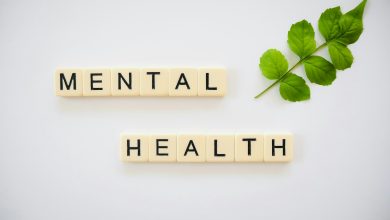How mental health counselors maintain safe medication practices

Mental health counselors are essential in helping people with their emotional problems and promoting change in their behavior. They teach their patients communication and coping skills, improve their self-esteem and confidence, and help them set goals for their future mental well-being.
By helping patients set short-term goals, counselors provide the means to measure their progress in short bursts, instilling confidence and encouraging them to work towards longer-term goals, including full recovery or complete management of their problem. This often gives patients a reason to live.
Paving the way to becoming a mental health counselor
Individuals committed to fostering positive mental well-being may find fulfillment in the role of professional mental health counselors. Pursuing a Masters in Clinical Mental Health Counseling is a crucial step toward obtaining licensure in this field. Esteemed institutions like the American International College provide a comprehensive online program focused on honing essential communication skills. This includes the capacity to effectively interact with individuals of diverse ages and backgrounds. Students also receive training in making informed decisions regarding patient care and treatment.
Mental health counselors find employment in various settings: hospitals and clinics, private practice, social work organizations, correctional facilities, and drug rehabilitation centers. The work is varied and exciting, and each environment has its challenges. Patients in need of mental health counseling come from all walks of life, each with their own problems and unique requirements when it comes to patient interventions.
Safety in mental health counseling settings
Medication and adherence thereto are vital in the treatment of mental health patients. When patients are residents in a clinical environment, monitoring and administering medicine is usually straightforward. However, when patients live at home, whether alone or with family, it becomes more difficult to monitor their progress and, in fact, to know whether they are taking their medication.
When mental health counselors prescribe or treat patients who are already on medication, the onus is on the counselor to ensure that the patient is responding well to the medicine and not experiencing any adverse side effects. They also need to make sure that the patient understands why they are taking the medicine and what the consequences will be if they stop. Many patients with behavioral disorders are not in a fit condition to accurately assess their ability to cope and stop taking medication because they may be experiencing unpleasant side effects.
Prescribed medication, its effectiveness, and side effects
In treating mental illness, the diagnosis determines what medication will be prescribed. Antidepressants, or anxiolytics, are used to treat anxiety, depression, and sometimes certain types of personality disorders. Depressants, on the other hand, are used to keep people calm. Antipsychotics are used to treat schizophrenia and bipolar disorder and to maintain the chemical balance in the brain. People with bipolar disorder may also be prescribed mood stabilizers. Stimulants are used for the treatment of people who have attention deficit hyperactivity disorder (ADHD).
Many of these drugs have side effects to some degree, causing headaches, drowsiness, dizziness, muscle spasms, nausea, and constipation. Patients who use medication may also notice long-term weight gain and a loss of libido. The most significant risk is probably that of addiction to certain drugs, and these should be avoided except when all else has failed.
How mental health counselors manage their patients’ medication
Mental health counselors have ways and means of keeping track of their patients’ progress, aided by the sophisticated communication options that we have today, such as Zoom meetings and social media messaging tools.
Medical team collaboration and the use of technology
Medical professionals in clinical and private practice collaborate to ensure adequate care for their patients. For example, mental health counselors are often called to counsel hospital inpatients who have undergone invasive surgery or to deal with nursing home residents who are suffering from depression. The various specialists who treat the patients will also collaborate regarding the medications being administered to avoid adverse reactions or overdosing on a particular ingredient. Once patients have received initial counseling, the counselor will keep in touch with general practitioners, specialists, and nurses in the various departments, giving and receiving feedback on the patient’s progress. By treating patients on a more holistic level, medical professionals ensure a speedier, more efficient recovery, and through communication channels with collaborating healthcare providers, counselors have a better idea of how prescribed medicines affect their patients.
Recent advances in technology have also provided medical teams with the convenience of having the patient’s medical details on hand whenever they are required. This means that doctors, nurses, and counselors can access the patient’s medical history, the details of their previous treatment and medication, and what medications they are currently taking. When all of this is considered, medical professionals can make informed decisions about how best to treat the patient and which medications to administer. If, for example, a patient has had an adverse reaction to a particular type of medicine in the past, the doctor will try an alternative option.
Effective counselor–patient communication ensures medication safety
Part of the mental health counselor’s responsibility is to educate their patients, getting them to understand the important link between physical and mental health. They try to ensure that their patient has access to a healthy, balanced diet and are getting sufficient exercise. Education on why and how medication needs to be taken is critical to the well-being of patients, and before sending the patient home with medication, it is important to ensure that they fully understand what their medication is for and the repercussions of not taking it as prescribed. The patient also needs to know who to contact in the event of an adverse reaction to the medicine.
In the early stages of treatment, mental health counselors must be particularly vigilant, monitoring the patient’s progress and any side effects that they may be suffering from because of the prescribed medicines. This may mean regular contact by phone or a messaging system or, in extreme cases, hospitalization for a period of observation. If the side effects are a concern, the counselor will change the treatment plan and prescribe an alternative medication.
However, it is easy for a patient suffering from depression to lapse into old habits or for someone with a behavioral disorder to shrug off anything that seems remotely helpful. At this point, the counselor will have to make the decision as to whether the patient needs to be in a more controlled environment and how to go about it.
Adherence and nonadherence to medication
Patients are generally considered to be nonadherent when they have missed 20% of their medication.
A study published by the National Library of Medicine shows that the likelihood of adherence to medication in people who suffer from mental health issues can depend significantly on their background, beliefs, attitudes, and their tolerance of mental health issues.
In an article published by PubMed in 2021, the three most reported medication incident types in mental health hospital environments were omission to take the medicine, taking it at the wrong times, and receiving incorrect or unclear instructions on the dosage requirements. Contributing factors were cited as failure to follow protocols in the clinical environment, a lack of continuity in care, the patient’s behavior, and often, a shortage of stock. Note that these statistics do not include patients who reside in private residences.
In 2019, mental health disorders accounted for 14% of the global illness statistics and 30% of the nonfatal disease statistics. It was also determined that therapeutic nonadherence exacerbated these figures. More recently, it has been found that rates of medication nonadherence in bipolar disorder patients are 44%. While 50% of people suffering from depression, and 56% of those with schizophrenia, are not adhering to medication prescriptions.
Increase patient involvement to increase adherence
Adherence implies patient consent to the taking of medication and places the therapist under an obligation to make the patient understand the reasons for taking the medication and the seriousness of stopping its use at any stage.
Studies have shown that patients have become increasingly willing to be included in their healthcare options, actively seeking interaction with their healthcare practitioners, and being involved in the decision-making process. Healthcare practitioners who diagnose a problem take cognizance of the patient’s social and family dynamics and recommend the appropriate lifestyle changes, educating patients and enabling them to achieve their maximum health potential, be it physical or mental.
Self-management for patients, therefore, includes specific components such as managing their treatment, their emotional well-being, and life’s responsibilities. In this scenario, there is a requirement for the counselor’s involvement to assist patients in recognizing and solving the problems connected with their condition.
Joint effort to decrease nonadherence
Considering this, nonadherence can be seen as individual responses that do not coincide with the healthcare practitioner’s or counselor’s advice and recommended treatment.
Nonadherence has far-reaching effects: it leads to further counseling, more prescribed medication, suicide attempts, emergency service callouts, and hospital admissions, all of which place strain on the medical and state financial systems.
The concept of adherence presupposes voluntary and collaborative behavior on the patient’s part as someone who is aware of their health issues and who wants change. The patient needs to be committed to following the suggested regimen and should know how to properly use the medication. Patients need to be provided with coping and self-care skills. Their ability to reflect on past experiences and the effects that nonadherence can cause is paramount to the success of medication regimens.s
In treating patients with mental illnesses, mental health therapists’ endeavor to take the patient’s specific circumstances into account, including their family and social support systems and their cultural and social values.
The quality of care available to patients also has an effect on adherence. The clinical environment they are exposed to and the support received from a multidisciplinary team of medical professionals and counselors are important factors in producing positive patient outcomes.
How to detect nonadherence
Establishing relationships with and enlisting the help of the people who surround the patient in their daily lives is possibly one of the most effective ways of monitoring their adherence to medication and leading a structured, healthy lifestyle. However, this may not always be possible.
The Medication Adherence Rating Scale (MARS) is a 10-item self-report tool developed by a team of scientists in Maryland and successfully used in the assessment of the recovery of people with serious mental illness. MARS is used by mental health practitioners to establish both the patient’s self-reported adherence to medication as well as their attitude towards medication. It also provides information on the negative side effects of the medication and is generally well-accepted by patients. MARS is used mainly by patients suffering from psychosis, schizophrenia, bipolar disorder, and severe depression.
Simply asking the patient questions regarding their medication adherence is not always reliable; however, other methods exist, such as pill counts and blood level measurements. Electronic containers that measure how many pills have been taken and digital tablets consisting of “ingestible event markers,” which transmit signals via a patch worn on the torso to a cell phone, are some of the more drastic measures used to detect non-adherence.
A caring environment
People who are suffering from mental illnesses are likely to feel insecure and unhappy; therefore, it is important to provide them with a counseling environment that imparts a sense of security and trust. This will enhance the healing process and their acceptance of suggestions regarding lifestyle changes and self-love, letting them know that there are people on their side and that their well-being is of concern. Ultimately, keeping communication channels open and maintaining their trust will strengthen the likelihood of adherence to medication and positive outcomes.





